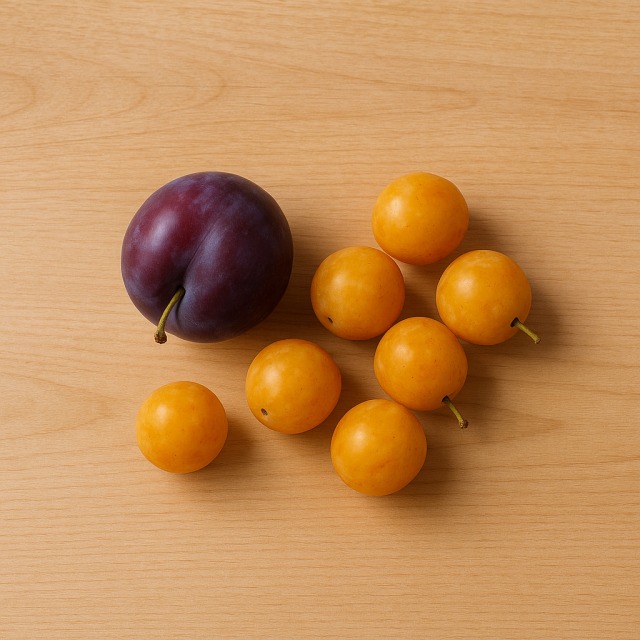Calorie Chart / Fruits / Orange
How Many Calories Are in Orange?
Calculation of the nutritional value & Recommended Dietary Intake of orange
For g and a calorie requirement of kcal
| Calories 70 kcal | Proteins 1.8 g | Lipids 0 g | Carbohydrates 16 g |
| 4% | 2% | 0% | 6% |
Health benefits of orange

Orange - 100g
Calories 40 kcal
Proteins 1 g
Lipids 0 g
Carbohydrates 9 g
With only 40 calories per 100 g, the orange is classified as a low-calorie food, making it popular among people who monitor their daily calorie intake for weight control or sports performance. Despite this modest calorie supply, it delivers an impressive amount of vitamin C (more than 50% of the daily recommendation in a medium fruit), plus folate and potassium.
Thanks to its vitamin C and a cocktail of flavonoids such as hesperidin and naringenin, the orange contributes to normal immune function and helps protect cells from oxidative stress—benefits that come at a very small calorie cost. Its soluble fibre (mainly pectin) supports digestive comfort and may slow the absorption of sugars, again without adding many calories to the plate.
The fruit is also about 87% water, which supports hydration while keeping total calories low. Historically, sailors carried oranges to prevent scurvy during long voyages—proof of its nutrient density relative to its calories. Whether you need quick energy during endurance training or a light snack between meals, its fresh taste and restrained calories make it a smart choice.
Tips for incorporating orange into a balanced diet
If you wish to keep calories under control at breakfast, pair orange segments with a bowl of oat flakes and a spoon of yogurt. The mix supplies slow-release carbohydrates, proteins, and extra fibre while adding only modest calories overall.
For a balanced lunch, combine orange wedges with grilled salmon, fennel, and arugula in a salad. The citrus lifts the flavour without heavy sauces, so you keep calories in check while benefiting from omega-3 fats and high proteins.
Looking for a light dessert? Dip slices of orange in a square of melted dark chocolate; the vivid acidity balances the chocolate's bitterness while keeping dessert calories moderate. Alternatively, add diced orange to a fruit salad or blend it into a quick sorbet to satisfy a sweet craving for minimal calories.
When planning endurance training, freeze orange quarters for a refreshing halftime snack. They supply quick sugars, electrolytes, and—thanks to their low calories—won't weigh you down.
Frequently Asked Questions
- How many calories are in an orange?
- 40 kcal per 100 g.
- Are oranges good for weight-loss diets?
- Yes. Their high water and fibre content promotes satiety, and their low 40 kcal per 100 g helps you keep daily calories in check.
- Do orange calories change when you make juice?
- Per 100 g of fruit, the calorie value stays close, but juicing removes fibre, so you may consume more volume—and more calories—before feeling full.
- Does the variety (navel, blood, Valencia) affect calories?
- Only slightly; most varieties hover around 40–45 kcal per 100 g, so calorie differences are negligible.
- Are calories in orange peel significant?
- No. The peel is rarely eaten in large amounts and supplies minimal calories, though it is rich in aromatic oils.
Similar foods
Information provided by Calorie Menu may contain inaccuracies or errors. It cannot, under any circumstances, substitute medical advice or medication.










